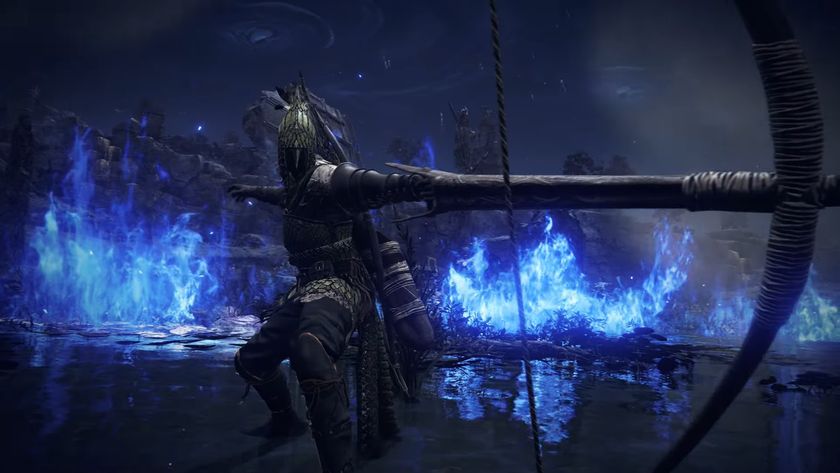How the localization of Final Fantasy 14 rose from the ashes
Translation director Michael Christopher Koji Fox chats to PLAY magazine about a script reborn
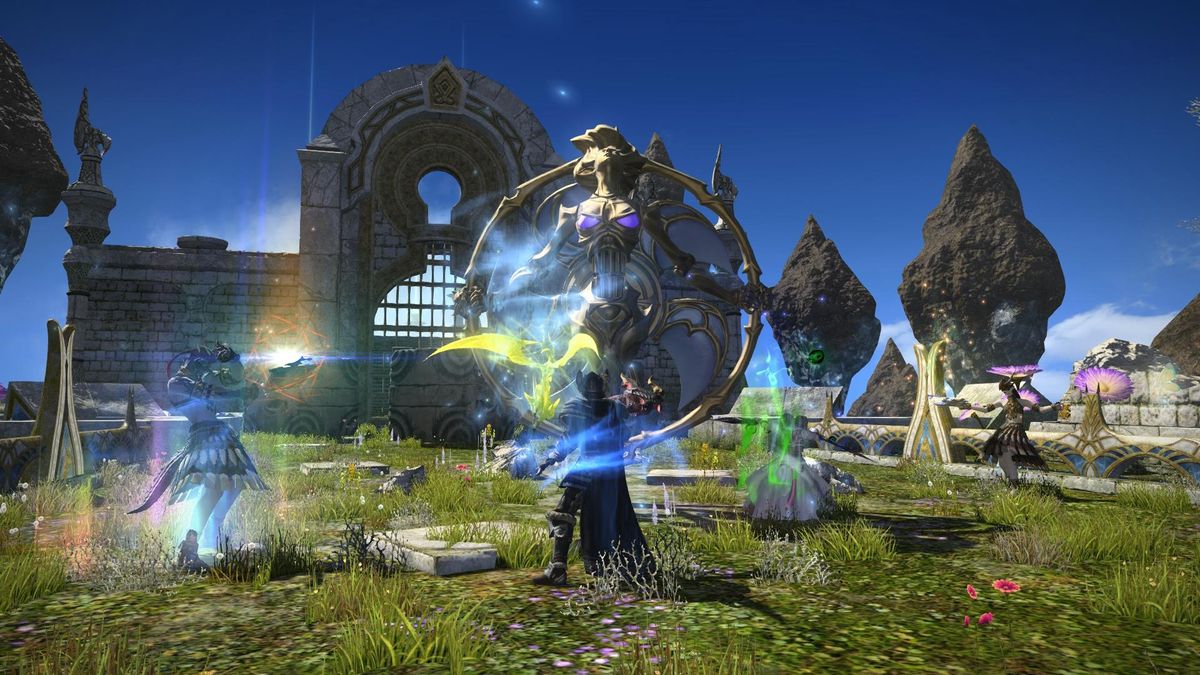
Long before the days of free trials up to Heavensward and thousands of fans eagerly waking up before dawn to run through a new patch's dungeons with friends, Final Fantasy 14 was in trouble. A now-renowned complete rework, FF14: A Realm Reborn, was eventually released to critical acclaim. There are many reasons why it succeeded – but among them is the improved English script.
FF14 translation director and localisation editor Michael Christopher Koji Fox tells PLAY magazine that the project's localisation came to life in a crucible of despair and new hope. "The mental approach [to the project] was far different from anything I have experienced in my two decades at Square Enix (before and after ARR)," Koji Fox says. "After 1.0, spirits were low, and there was a lot of doubt about whether or not the ship could be righted. And even if it were righted, would the public give it a second chance?"
Not so final


This article first featured in PLAY magazine. Fancy more? Subscribe to PLAY Magazine here!
Koji Fox says there was an odd combination of anxiety and feelings of inadequacy mixed with a sense of liberation and a kind of "weird euphoria" throughout the office. However, producer and director Naoki Yoshida told the team he believed in them and encouraged them to believe in themselves again – so that's what they did. "We were getting a chance at redemption," Koji Fox says, "and there is nothing like falling off a cliff and surviving to cure someone of their fear of heights."
The team took a broadly similar approach to A Realm Reborn as they had to the original FF14. They adopted the same high fantasy tone that Koji Fox says he and the original creative leads discussed long before the original was released, and once again used George RR Martin's A Song Of Ice And Fire as a model (along with many other classic fantasy works), partly out of necessity. "We felt they worked well with the revamped story and still matched the overall tone of the game," Koji Fox says. "Also, after several years of working on 1.0, the team had grown comfortable writing in that style, and as a result could localise larger amounts of text more efficiently. This was especially important when considering how large the game was planned to be." "[My goal was] nabbing as much in the way of obscure vocabulary and sexy turns of phrases as I could in order to cover the ridiculous amount of naming work (items, abilities, place names, etc) that accompanied the dialogue," says Koji Fox.
FF14's take on high fantasy is more than just noble Sers and dastardly rapscallions, though. Koji Fox says that his previous work on predecessor MMORPG FFXI, where race determined dialect, inspired him to do the complete opposite and focus on regional and cultural differences in speech patterns. Fox and his team created dialects for each of Eorzea's major regions – the aloof Gridanians, people on both sides of Ul'dah's strict class divide, and, perhaps trickiest of all, the salty seafarers of Limsa Lominsa. In A Realm Reborn, Limsa Lominsa's leaders are keen to change the port from a seedy pirate haven to a trade harbour that's mostly above board.
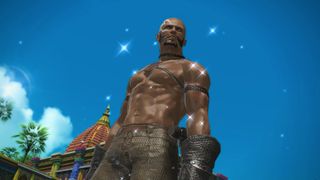
Not everyone agrees with Limsa's new direction, though, and Koji Fox and his team reflected the stormy waters with a range of dialects. The admiral of the fleet speaks in a mostly proper tone, for example, while reformed pirates try scrubbing the brine from their language with moderate success, and rogues and the lowest of the low sprinkle their sentences with a generous range of curses and niche nautical lingo. "We did make some significant tweaks during the transition—the biggest one probably being the toning down of some of the characterizations in Limsa Lominsa [a melting pot of former pirates] after having realised (with the help of some kindly player comments) that the accents we heard in our heads simply hadn't translated well to text and were causing way more confusion than necessary," Koji Fox says.
All that work was just for Eorzea's bipedal races. The team also had to create entire linguistic codes for the continent's so-called beast tribes, societies of industrious goblins, secretive wood spirits, and disgruntled worshippers of the region's ancient deities, that reflected their lifestyles and beliefs.
Sign up to the 12DOVE Newsletter
Weekly digests, tales from the communities you love, and more
"[This] approach was a little different, as we wanted them to feel more unique, more foreign," Koji Fox says. "As their societies would have evolved separately from the other humanoid races, it was important that their languages reflected that bifurcation in linguistic evolution. And then, from these linguistic differences, the hope was that the player could also learn a little about the societies." The woodland Sylphs, for example, are a communal society and don't use 'I' or personal pronouns. The team wanted to emphasise the Goblins' role as engineers, builders, and recyclers, so they decided to have them use crafted compound words such as 'jinglyshinies' and 'busydeals'.
Inventory space
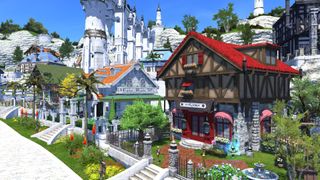
"The thing about localisation, though, is you can't really do your job until everyone else has, and because of that, by the time a lot of the text finally made it into our hands, there wasn't much time left."
Then there are the silent characters who can't tell their own stories: the items. Koji Fox decided to try something different "after about the hundredth time translating 'bronze sword: a sword made of bronze'," and took advantage of what he saw as a missed opportunity to make Eorzea feel more alive. In FF14, you don't just get collectible chocobo feathers to trade with scrap mongers. You have "brilliant plumes," that are a "symbol of friendship throughout the realm."
Even run-of-themill items have little flourishes that give them depth and interest. Low-level potions are "weak concoctions," while the common dish Marmot Steak is "grilled with sweet onions and pungent Garlean garlic." "Expanding these item help blurbs was a way of introducing snippets of Eorzean background into the game without having to resort too heavily on expository lore dumps in quests," Koji Fox says. "Fortunately, the dev team agreed, and rather than asking the [English team] to cut back, soon help text in all languages was being fleshed out… creating more work for everyone. Yay!"
Square Enix and FF14 fans might have appreciated the additional depth, but extra work was hardly what the team needed at the time. Koji Fox says that meeting A Realm Reborn's shipping date – a deadline which Naoki Yoshida refused to adjust – was the project's biggest challenge. As with any game, the localisation team's work depended on other departments – the battle team, the item team, and even the web team – finishing theirs first.
"The thing about localisation, though, is you can't really do your job until everyone else has, and because of that, by the time a lot of the text finally made it into our hands, there wasn't much time left." Koji Fox says. "You also have to realise that a lot of the work we did on ARR was done while also regularly updating 1.0. While a lot of this development work was split between two teams, us localisers didn't have that luxury and ended up working on both versions simultaneously. Suffice it to say, in those last few months before relaunch, we all learned why the Final Fantasy series has this strange obsession with Limit Break."
He says the situation improved when working on recent patches, though the team still has to contend with tight deadlines and even high turnover rates. More than 20 different translators have come and gone since A Realm Reborn was released, a situation which Koji Fox says puts some necessary limitations on the team's creative licence. Coming up with a clever linguistic twist or complex phrasing might seem like a good idea, but when it creates extra, unnecessary work for new members of the team it simply isn't sustainable in the long term. While Koji Fox might not have the time and freedom to implement every idea, the team has clearly found a winning formula.
The MMORPG is still going strong after a decade of updates, expansions, and no shortage of characters with new linguistic flourishes and quirks. Even after so much time has passed, though, Koji Fox hasn't forgotten just how close everything came to unravelling after the first version. "No-one had to give us a second chance," he says. "I'm not even sure we deserved it, but given it we were, and I (and a good number of the others who worked on the game) will never, ever forget that." We're glad they got that chance.
For more unrivalled developer access to the hottest PS5, PS4, and PSVR games, why not subscribe to PLAY Magazine?
Josh is a freelance writer and reporter who specializes in guides, reviews, and whatever else he can convince someone to commission. You may have seen him on NPR, IGN, Polygon, or VG 24/7 or on Twitter, shouting about Trails. When he isn’t working, you’ll likely find him outside with his Belgian Malinois and Australian Shepherd or curled up with an RPG of some description.
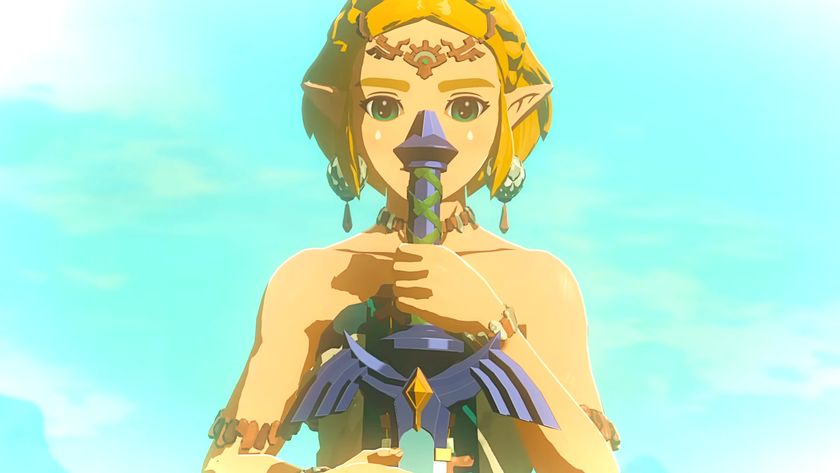
Final Fantasy 7 Remake's Aerith actor is throwing her hat into the ring for the Legend of Zelda movie: "I just wanna audition for Zelda so bad"
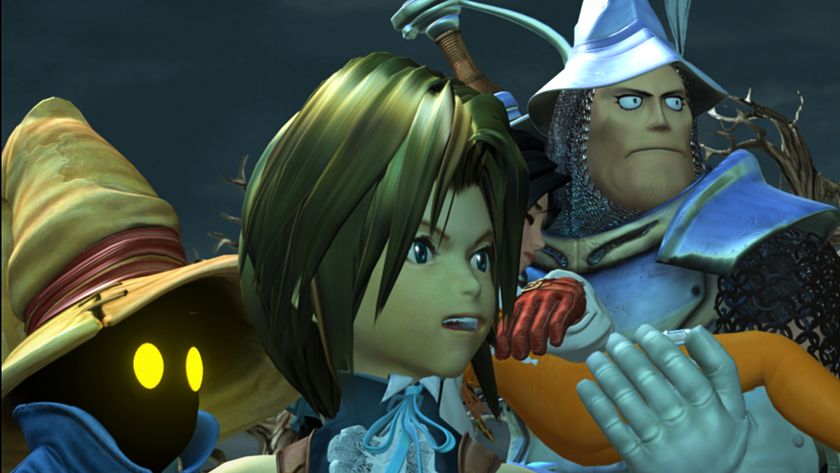
Final Fantasy 9 gets website celebrating 25th anniversary with hints of "various projects," leaving fans of the JRPG hopeful for the long-rumored remake

